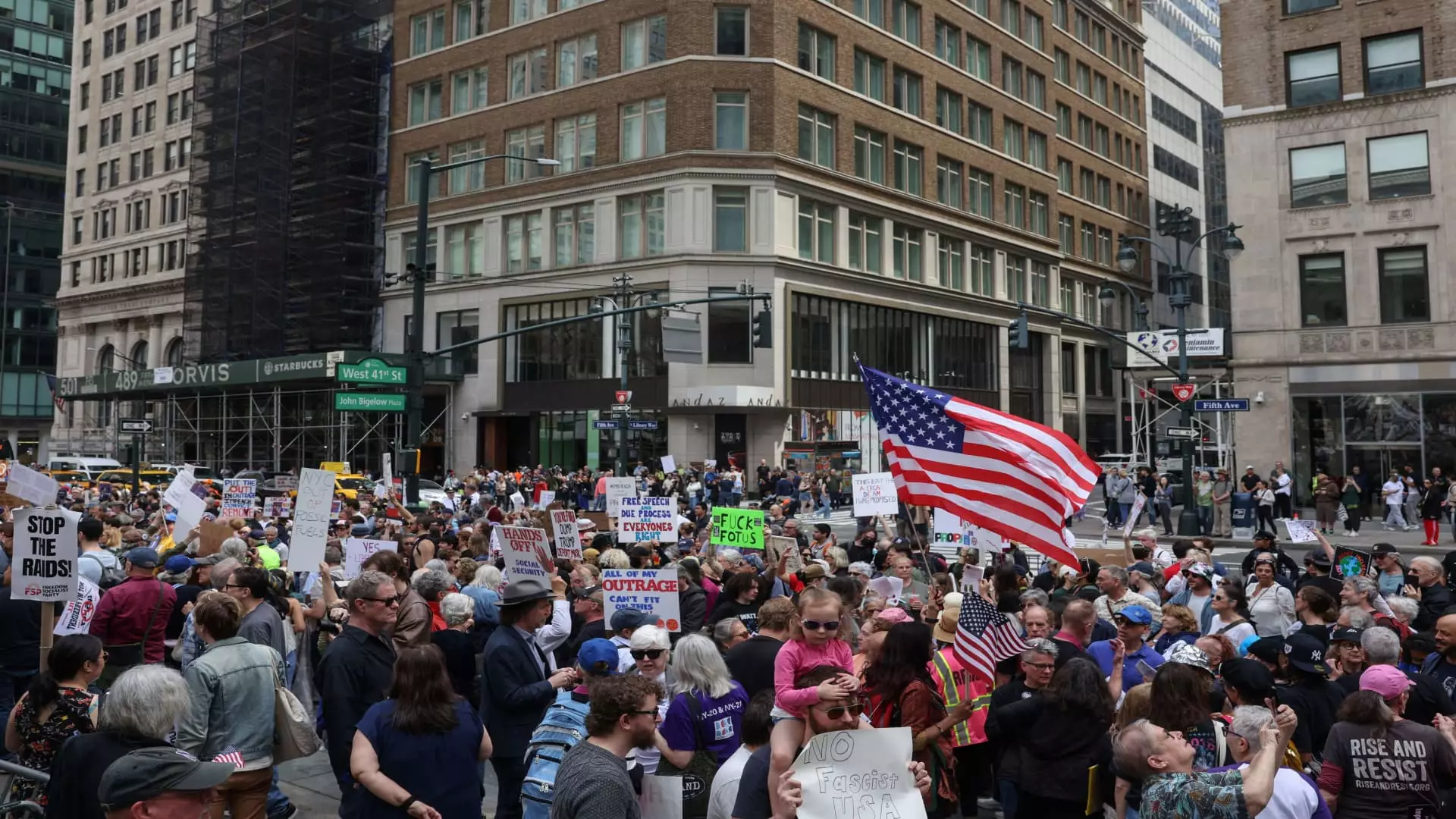In recent months, a resounding wave of discontent has swept across the American landscape, manifesting itself in protests and gatherings dedicated to preserving the democratic ideals that form the backbone of our nation. Citizens from all walks of life have taken to the streets, fueled by a profound unease over the actions of President Donald Trump’s administration. These gatherings, ranging from clamorous demonstrations in urban centers to somber commemorations of our historical struggles for freedom, underline a potent sentiment: Americans believe they are on the cusp of losing the very liberties that define their existence.
One cannot overlook the symbolism inherent in these protests, especially when they coincide with historical events like the 250th anniversary of the Battles of Lexington and Concord. For many participants, these moments represent a clarion call to arms—a reminder that throughout history, the fight for freedom has often required collective action against oppressive power. Thomas Bassford, an 80-year-old veteran of life’s battles, drove hours to engage in this symbolic reenactment. He articulates a concern that should resonate deeply with all citizens: the belief that freedom itself is under siege.
The Multifaceted Nature of Resistance
The protests illustrate not only a palpable discontent with the Trump administration but also showcase a diversified approach to resistance. From community service initiatives to vocal demonstrations outside the doors of powerful figures like Elon Musk, activist strategies are as varied as the causes they champion. While many decry the administration’s blatant disregard for civil rights—culminating in drastic immigration policies and government cuts—others utilize grassroots strategies to resist not just politically, but socially and morally, building a sense of community and solidarity.
Yet, the essence of these protests reaches beyond mere policy disputes; it speaks to a larger narrative about the role of government in safeguarding individual rights. Events held in opposition to the administration’s perceived overreach illustrate a rejection of the notion that one person’s power can dilute the collective rights of the populace. To borrow an age-old articulation of dissent, these individuals embody a modern-day “no kings” movement, invoking the spirit of our forebearers while advocating against the emergence of a governmental structure that threatens democratic integrity.
The Facade of Authority: A Deepening Crisis
Witnessing individuals like George Bryant brandishing signs demanding the end of a “fascist regime” underscores the emotional gravity of this moment. Bryant’s characterization of the current administration encapsulates a frustration that resonates broadly among citizens observing the erosion of checks and balances. The specter of a “police state,” he argues, is not merely an exaggerated fear but a real possibility as the executive branch demonstrates a willingness to bypass judicial constraints.
Bob Fasick’s comments about the potential demise of crucial social safety nets add another layer to this alarming picture. When the rights of the vulnerable are under threat, the foundations upon which our society is built become even shakier. By witnessing firsthand the government’s attempts to dismantle agencies that serve the public good, it is clear that our political discourse requires urgency. Failure to act could lead to an irrevocable change in the American landscape—one marked by oppression rather than equity.
The Voices of Dissent: A Shared Responsibility
In Manhattan, the protestors rallied with fervor, epitomizing a nationwide essence that extends beyond mere opposition to Trump; it is a collective advocacy for justice, love, and understanding amidst an environment rife with fear and hatred. With chants like “No fear, no hate, no ICE in our state,” they challenge the administration’s actions—not only standing up for the marginalized but also for the very principles of democracy and human dignity.
At the core of this movement is the recognition that democracy demands vigilance and participation. Dissent is not merely an abstract concept but a civic duty; an intrinsic responsibility for preserving the society we wish to leave for future generations. Each protest, each act of defiance, demonstrates the courage of ordinary Americans unwilling to remain silent in the shadow of tyranny.
In the wake of this turmoil, it becomes evident: the fight for democracy is personal and communal—it is a shared journey against forces that seek to undermine the very essence of freedom and equality. The stakes are high, and the time to join the movement is now.


Leave a Reply